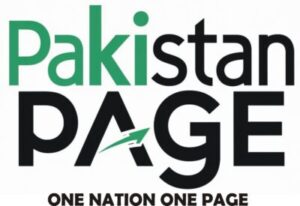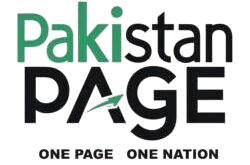Islamabad:In a significant move to address the country’s standing in the Global Gender Gap Report 2025, the National Commission on the Status of Women (NCSW) convened a high-level National Dialogue in Islamabad. The event brought together experts, policymakers, and development stakeholders to identify challenges and propose evidence-based, inclusive solutions to promote gender equality in Pakistan.
Central to the discussion was the call for the formation of a National Task Force on Gender Data Synchronization, aimed at unifying data custodians under a coordinated framework. The participants emphasized the need for inter-agency protocols to enable real-time, disaggregated data sharing, led by NCSW. A key proposal was the creation of a Pakistan-owned National Gender Equality Index, grounded in local realities yet aligned with global standards. Expanding the Gender Data Portal to include neglected areas such as unpaid care work, digital inclusion, and time-use statistics was also strongly advocated.
In the first panel, “Reading Between the Ranks”, Amir Jehangir, CEO of Mishal Pakistan, stressed the urgency of addressing systemic data gaps that obscure women’s roles in society. Ali Kemal of the SDG Unit underscored how the absence of timely and accurate data impedes gender parity efforts. Dr. Lubna Shanaz Umar highlighted the economic potential of increasing women’s workforce participation, while Mehnaz Akber Aziz called for formal recognition of women’s contributions across all sectors. Mahmood Akhtar Cheema from IUCN Pakistan linked environmental and social challenges with gender equity.
The second panel, “Progress in Motion,” celebrated achievements while calling for acceleration. Saira Faisal Syed of GSMA emphasized digital inclusion as key to women’s empowerment. Zubair Faisal Abbasi spoke of creating supportive ecosystems that value women’s success. Aasia Sail Khan reiterated that gender equality is a societal—not just women’s—issue. UNDP’s Nadia Ali and UNICEF’s Fahmida Khan both reinforced the importance of data-driven policy frameworks for sustainable change.
In the third panel, “Invisible Work, Missing Data,” the spotlight turned to structural blind spots. Dr. Nayyab noted the lack of statistical visibility for women’s unpaid labor. Dr. Ayra Indrias Patras advocated for formal acknowledgment of care work as a national economic contribution. Gulalai Khan emphasized bridging the digital gender divide, and Dr. Hassan Orooj emphasized prioritizing women’s health for holistic progress.
The dialogue concluded with a bold call to action: build systems that count every woman, ensure policies reflect lived realities, and take ownership of the national gender narrative. NCSW Chairperson Ume Laila Azhar posed a powerful question: “Can Pakistan afford to be written out of its own gender narrative? Or will we rise to build a system where no woman’s contribution is marked as ‘not available’?”
Guest of Honour Abdul Khaliq Sheikh, Secretary of the Ministry of Human Rights, reaffirmed the government’s commitment to working with NCSW, declaring that women’s empowerment is vital to Pakistan’s prosperity. Pakistan’s Permanent Representative to the United Nations in Geneva echoed this, stressing the country’s dedication to global gender parity efforts.
The way forward lies in institutionalizing the National Gender Equality Index and ensuring women’s contributions are formally recognized and embedded in national data systems. This is not only vital for improving Pakistan’s global rankings but also for crafting equitable, informed policies that shape a fairer future for all.

